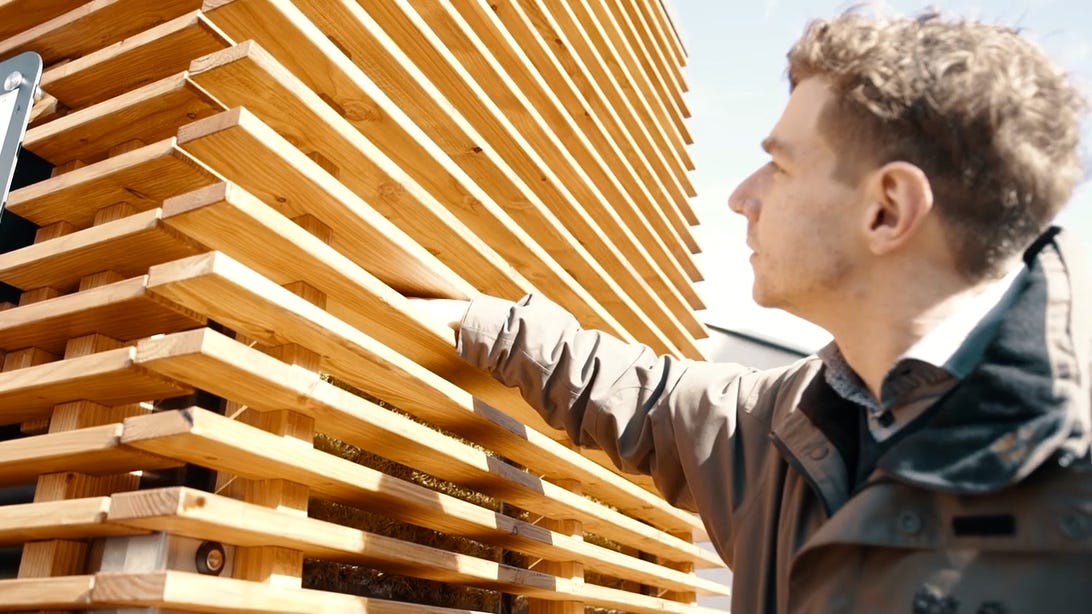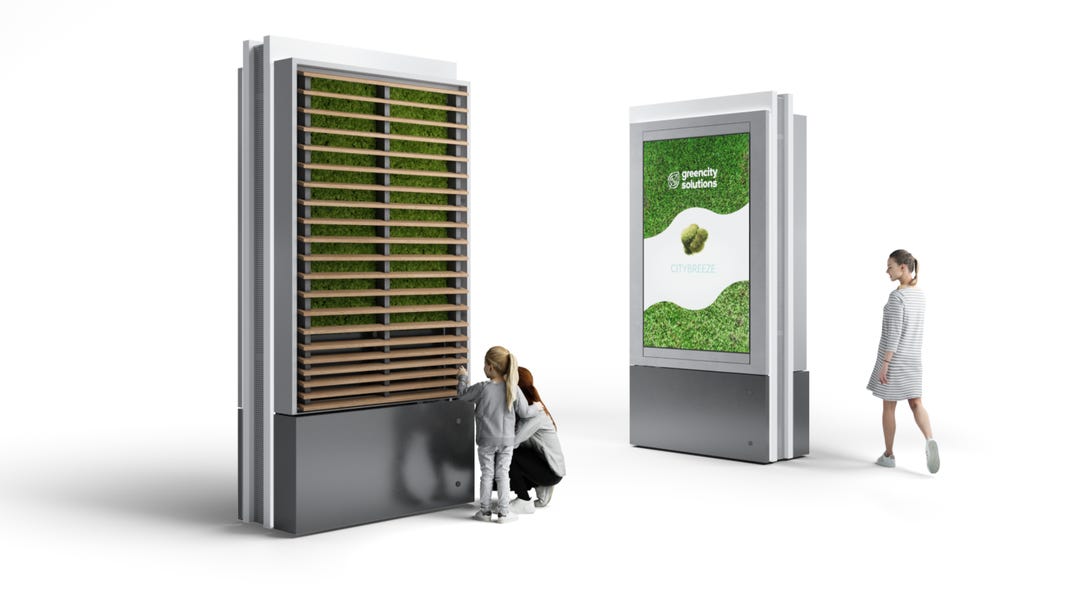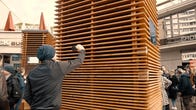Last year, at the height of fire season when the sky was orange, I ordered my first air filter. The fires and the resulting smoke-filled sky were visible reminders of a much less visible problem: air pollution, which the World Health Organization (WHO) calls "one of the biggest environmental threats to human health, alongside climate change."
To help tackle the problem of air pollution, a company called Green City Solutions has developed outdoor air filters that harness the power of one of nature's most prolific air-filtering organisms: moss.

Moss growing inside a CityTree
Green City SolutionsLiang Wu, the company's co-founder and Chief Information Officer, tells us how "the mosses convert that pollution into biomass, so they're literally eating the pollution."
In order for this to work, the company had to engineer a suitable environment for the moss to grow within cities. The result was The CityTree, which the company touts as "the world's first biotech fine dust filter for urban spaces."

A CityTree in Berlin
Green City SolutionsIn addition to filtering out particulate matter, Green City Solutions says that its CityTree also cools air temperature by up to 4 degrees Fahrenheit via evaporation from moss's surface. It also includes sensors that can detect what sort of pollution is around and how much. That data could help pinpoint the major sources of pollution, help reshape policy and help generate public pressure campaigns.
To maintain this filtering and cooling, the CityTree requires about four liters of water each hour and 120 watts of power.
The company also offers a product with a built-in LCD screen called the CityBreeze, which can display advertisements or public service announcements. The idea is that the advertising revenue might one day pay for the rental of the device, so that people in the surrounding area can enjoy clean air without having to pay for it themselves.

The CityBreeze.
Green City SolutionsGreen City Solutions is also developing a modular moss wall called WallBreeze, which is expected to be completed by early next year.
The CityTree and the moss inside it does have some limitations. In areas where pollution is severe, the pollution could damage the moss. Liang told me that Green City Solutions hasn't put any CityTrees in such areas, but he believes the company will eventually be able to do so with some improvements to the technology.
Right now, CityTrees can be found throughout Europe in cities like Berlin, Oslo, London, Paris and Cork, Ireland.
"machine" - Google News
October 23, 2021 at 07:00PM
https://ift.tt/2XEiE8D
Harnessing moss and machine learning to capture air pollution - CNET
"machine" - Google News
https://ift.tt/2VUJ7uS
https://ift.tt/2SvsFPt
Bagikan Berita Ini















0 Response to "Harnessing moss and machine learning to capture air pollution - CNET"
Post a Comment